
When I think of a green building, a beautiful little stone house (not so sure why stone, but hey), that has ivy crawling up the one wall, with a little veggie patch in the back-garden with children running around. A water tank catching rainwater and a windmill somewhere doing whatever it is windmills do, but there is a little more that goes into being a “green building” than a few self-sustainable items.
So, what is a “green” building? A building can only be classified as being “green” if the project team decreases or eliminates as much negative impact that building would have to the environment, from the design right through the construction and operation of the building. The idea is that the build then has a positive impact on the climate as well as the environment around it, which in turn improves our quality of life.
Now that we know what a “green” building is, we need to know what aspects that make up the “green” building. Many different aspects can make a “green” build, well “green”. So, what do these aspects include? Well, the building must have an efficient way of using energy this being water and other resources. “Green” building use more alternative type of energy like solar energy or wind energy. The next aspect of a “green” building is that the materials used during the construction and finishing of the building are non – toxic, sustainable and ethical. Another aspect that makes a “green” building is the waste from the building and what is done with it. Green buildings make sure that they minimise pollution as well as implements the practice of reusing and recycling.
The last aspect that needs to be considered is design. The look and feel of the building should be one with the environment around it. What this means is that not only does the building aspects that make a “green” build “green” needs to come into play like alternative types energy and so on, but also the actual look of the building as well. The building can’t be this lump of concrete and steel in the middle of a plot of land or removing half of the earth to construct a new office park. A “green” build goes with the land, following the contours and changing the design to suit the land and not the other way around.
The best part of a “green” building is that any building can be “green” whether it is a private home, an office building, even a school as long as it includes the aspects that we have already spoken about. It is also important to note that different countries do have different characteristics that would be used to shape their approach to green building such as unique cultures and traditions and even economic and social priorities.
South Africa has a few “green” buildings that the country can be more than proud to boast about and thanks to Green Building Council South Africa, buildings can even receive a rating on how green their buildings are. This rating system recognises brilliance in the sustainable design in South Africa’s “green” buildings. Their Six Star rating is the highest rating “green” building can receive and is only reserved world-class projects. The Green Building Council South Africa has 6 different star ratings. The rating starts at 1 Star and goes through to 6 stars as already stated. So what do these stars mean? 1-2 star is on the journey to being a better, greener building. 3 star is good practice. 4 star is the best practice. 5 Star is South African Excellence and 6 star is World Leadership.
Below is a list of just some of the “green” buildings that can be found in the beautiful Western Cape Province of South Africa.
The first property that we will be looking at is the Black River Office Park. The building is situated in Cape Town and is made up of 13 buildings that boast green credentials and solar installations. I mean how beautiful are those lines and all that glass would let in so much natural light meaning that less electricity would need to be used. The buildings in the office park arrange from 4 through to 6-star ratings.
 |
 |
 |
The next property that we are going to have a look at is the Convention Tower. The tower is located in Cape Tower right next to the Cape Town Convention Centre. The tower has been awarded a 4-star rating from the Green Building Council South Africa. Many features helped this building reach its 4-star rating.
 |
 |
 |
 |
The next building, we are going to be looking at is in the industrial sector of Cape Town. For me any industrial area has always been a huge source of carbon emissions for any country, so to find out that the Golf Air Park II has been designed to achieve a 4-star Green Star SA Industrial rating really made my heart happy.
 |
 |
 |
The next building is a gem found in Cape Town’s Central Business District (CBD). The Towers are a building complex that has a 40-year history with the city’s CBD which has been redefined and re-imagined. The building boasts new floor plans for their occupants with the façade that removes up to 60% of the UV light as well as saves on cooling and heating costs, boasts energy-efficient daylights and even has energy-efficient LED fins that go around the building that light up by day to highlight Table Mountain and Robben Island and by night the famous Cape Town Landmarks. The building only received a 2-star rating, but it is still pretty to look at.
 |
 |
 |
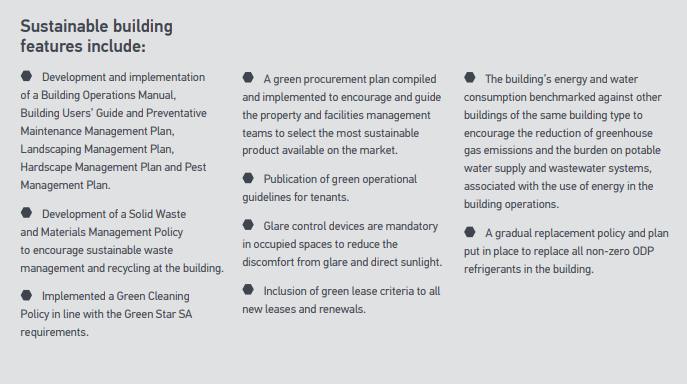 |
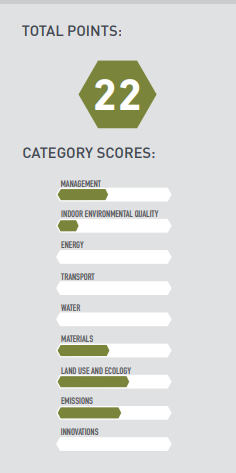 |
The next building that we will be looking at is a sophisticated, mixed-used office space for any professional that can be found in Cape Town. So, if you are looking for a chic, urban lifestyle that makes ups the cosmopolitan lifestyle, then the Wembley Square houses the offices for you. I mean, just look at the pictures and who wouldn’t want an office in this place?
 |
 |
 |
The next building, we are looking at is the 35 Lower Long building that is also found in beautiful Cape Town. The building is on the De Waterkant and is close to the V&A Waterfront as well as the Cape Town Invention Centre. The building has received a 4-star Green Star rating. Some of the features include, but are not limited to: “heating ventilation and air conditioning system is a cooled-air system. Making use of minimal water usage” (Anon., 2020). “Hot water supplied via heat pump. The lighting power density for 95% of the UA is less than 1.5W/m2 per100m2. Water closets, urinals and tape fixtures all reduce water consumption. Paints, adhesives sealants and carpets have low VOC emissions” (Anon., 2020), are just some of the aspects of this building.
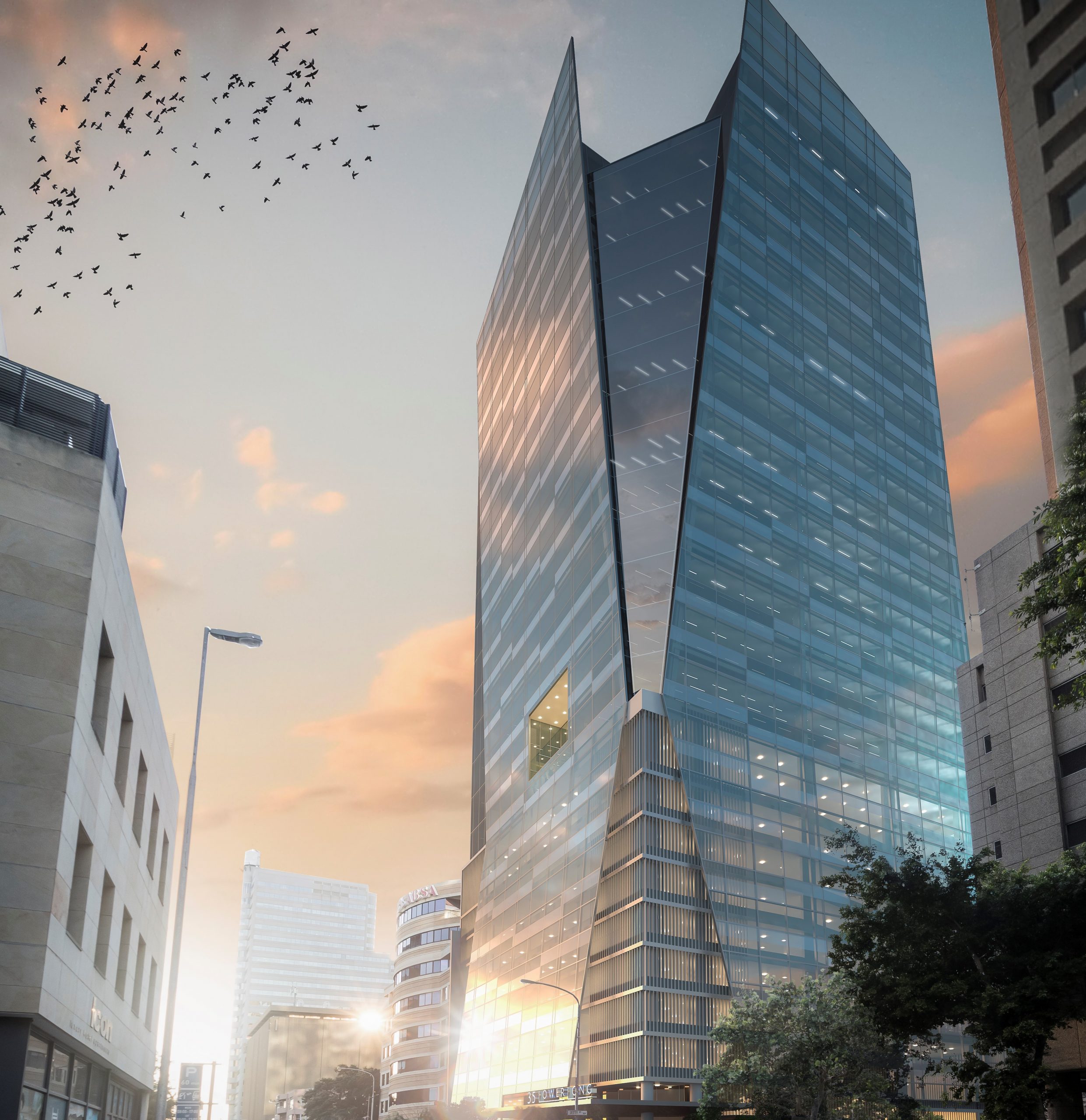 |
 |
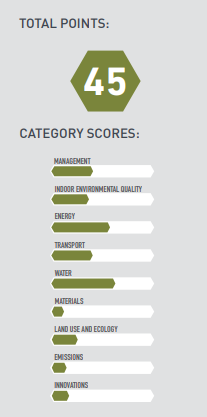 |
Our next building is the Head office of the City of Cape Town Electricity. That’s right, their head office has a 5 Star Green rating, how awesome is that? The building has two main sections that are separated by a multi-volume atrium in the centre with office spaces located around it. A series of bridges create various walkways between the different sections on each floor. Some of the features that got this building its 5-star rating including, but not limited to: “Major energy and water uses are sub-metered and controlled by a centralised Building Management System (BMS)”. “Solar panels have been installed on the main roof as well as on all carport roofs”. “A greywater recycling system reduces potable water use for flushing toilets and urinals and water-efficient fittings installed Cyclists’ facilities are provided” and so much more (Offices, 2020).
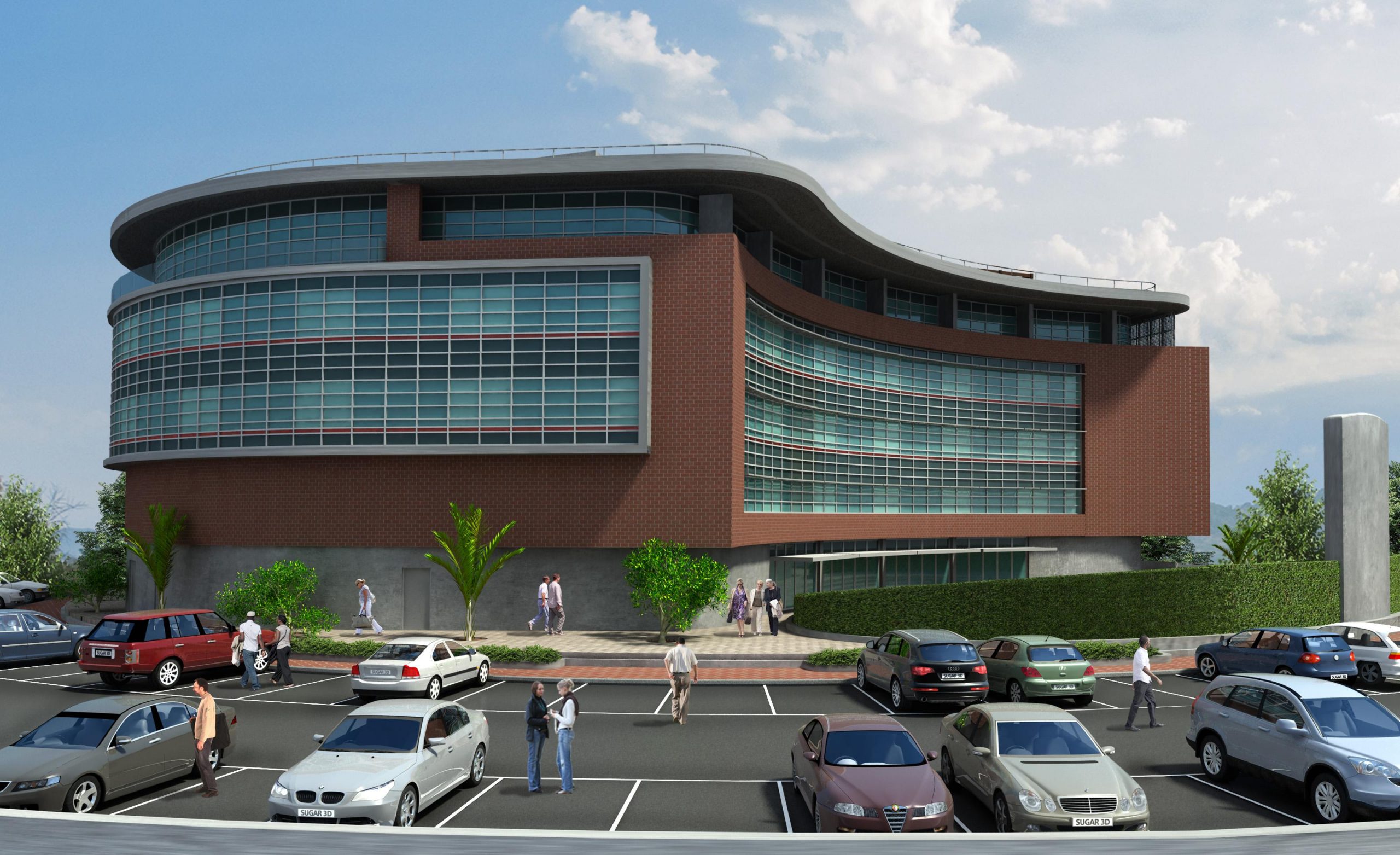 |
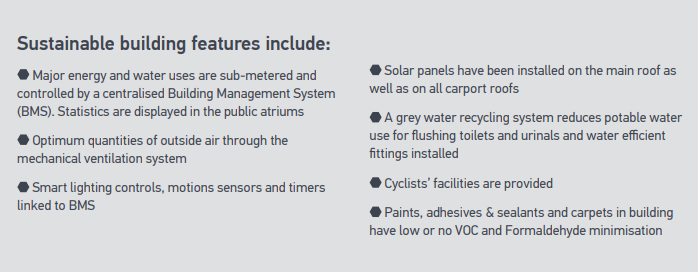 |
 |
The next building is one of my favourites, by far. It is a hotel that is situated just 400m from the Cape Town International Airport and can proudly boast a 6-star Green rating from Green Building Council South Africa. The developers wanted to create a building that would be a shining example for sustainability, luxury and convenience all in one. The hotel was designed from below the group up so that the building is as ecological as it can possibly be, a concept that is then followed through its day to day operations and decisions such as waste management, procurement and staff training.
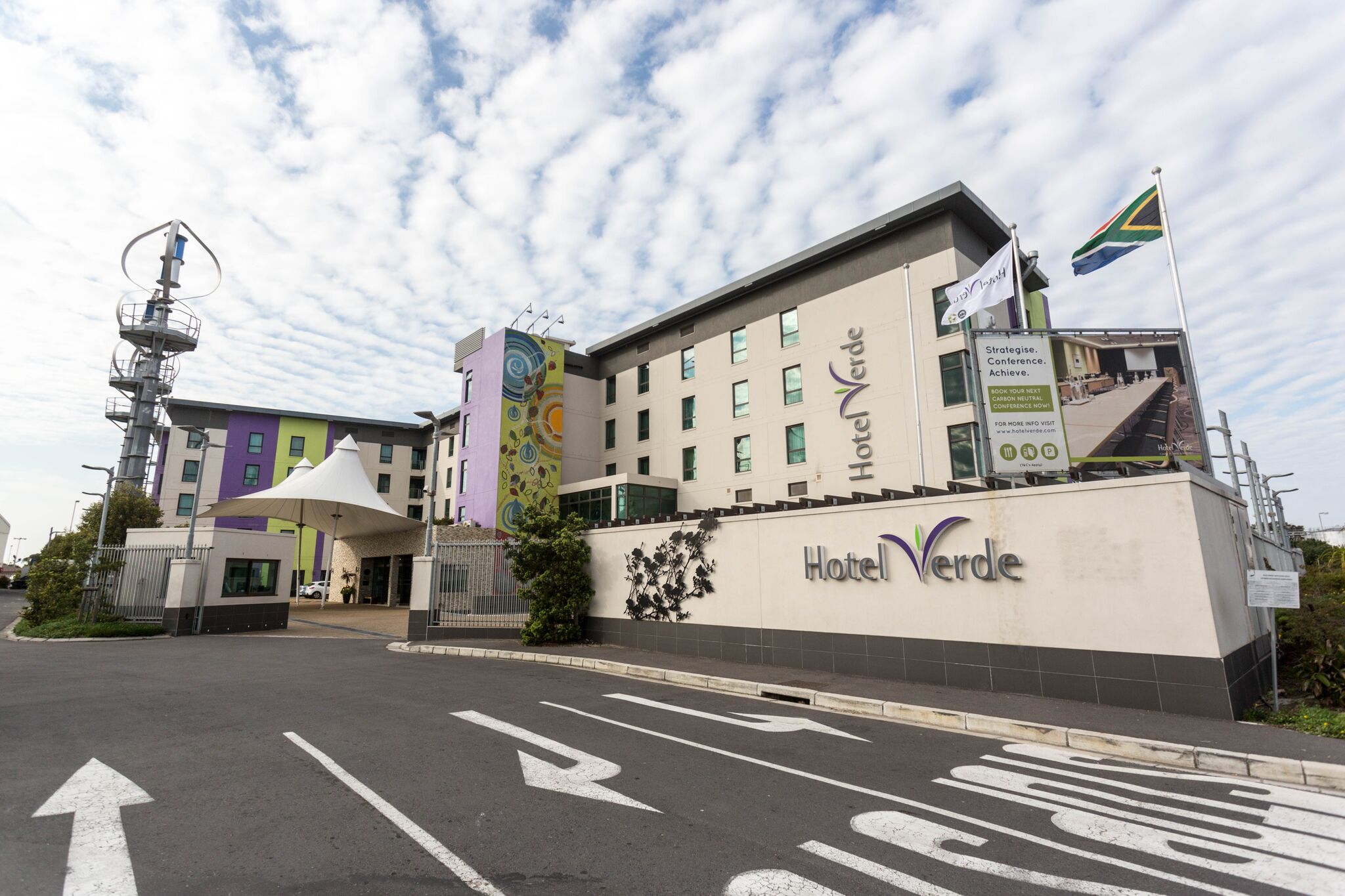 |
 |
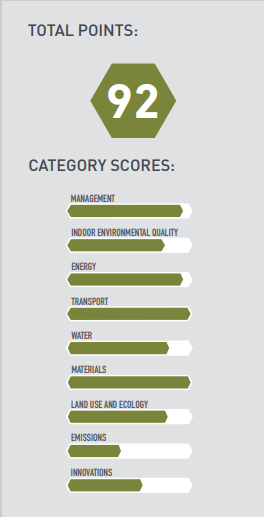 |
Our next building is has a 4-star rating. The SANRAL Cape Town office building which is conceptually constructed from two interlocking blocks that fall around a full-height central atrium that is in an H configuration. The building has three office levels that are over two mechanical ventilation basement levels. In other words, there are a lot of levels to this building for an office building for just one company.
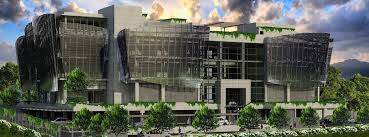 |
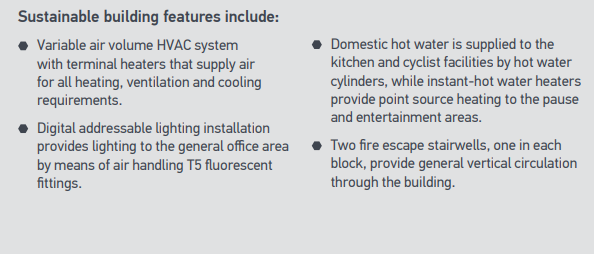 |
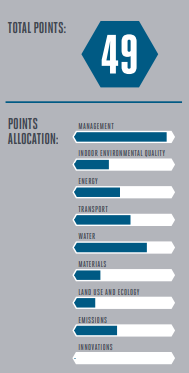 |
The last building that I am going to be talking about is The Cape Quarter Lifestyle Village which has a 4-star green rating from the Green Building Council South Africa. The square is an iconic mixed-use which can be found in the heart of the beautiful city of Cape Town.
 |
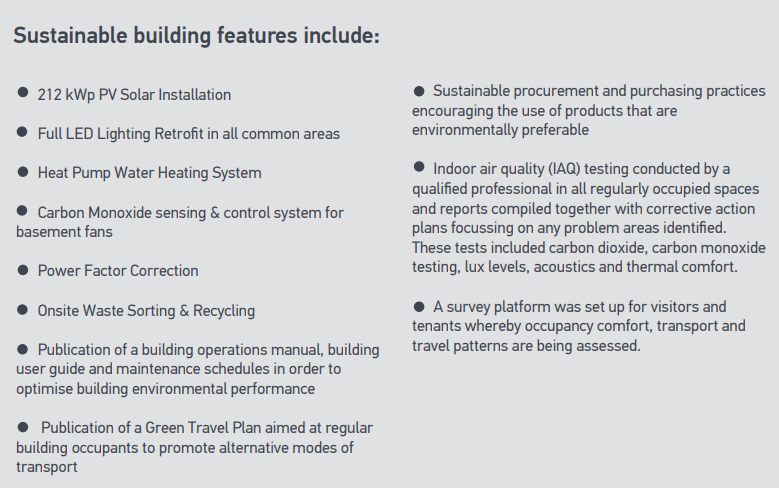 |
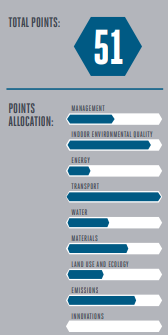 |
To view more Articles, please visit our Leads 2 Business Blog.
If you are interested in becoming one of our subscribers, please visit Leads 2 Business.
To view notes with screenshots on how to use our website, please visit Leads 2 Business Wiki.
About Carmen Van Der Westhuizen
I've been working for L2B since January 2020. I am lucky to be married to my bestfriend. I love a good Braai and spending time with my Family and friends. When I am not working or with those I love, I am planning my next holiday.

